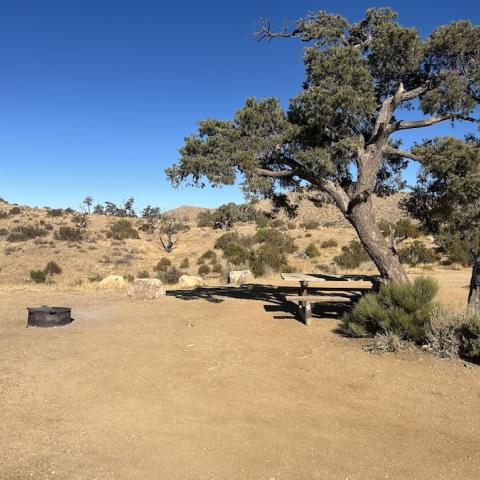
A federal judge has directed the U.S. Bureau of Land Management to take another look at a proposed water project in the Mojave Desert/NPS file
A controversial plan to pull billions of gallons of groundwater from beneath the Mojave Desert in California has been blocked by a federal judge, who ruled the review of the project by the Bureau of Land Management under the Trump administration "was a decision not to engage in review."
The Cadiz Water Project, called "innovative" by its proponents, seeks to pump as much as 16 billion gallons of water a year from beneath the Mojave Desert and pipe it off to thirsty Southern California cities. Opponents, though, said it would greatly impact tribal nations, local communities in the desert, and the Mojave Trails National Monument and Mojave National Preserve.
The court’s ruling Wednesday vacates the pipeline rights-of-way issued to Cadiz and sends the matter back to the BLM to do a better review of the proposed project.
According to the ruling, the BLM during the closing days of the Trump administration approved the project without conducting the necesssary environmental reviews. U.S. District Judge George H. Wu also told Cadiz that the BLM under the Biden administration was not being frivilous in asking for the prior approval to be erased.
"Cadiz argues that the BLM is acting in bad faith and/or frivolously, but Cadiz does not support this argument with persuasive or binding case law and/or evidence. This is not a scenario in which an agency – for example – compiled a full NEPA record, came to a well-supported opinion, and then reversed its opinion mere months later," wrote Wu. "Cadiz argues that the BLM is acting in bad faith and/or frivolously, but Cadiz does not support this argument with persuasive or binding case law and/or evidence. This is not a scenario in which an agency – for example – compiled a full NEPA record, came to a well-supported opinion, and then reversed its opinion mere months later. Here, there is no Environmental Assessment, Environmental Impact Statement, or accompanying record of decision, for example – only what appears to be a rushed, cursory decision to grant the rights-of-way under categorical exclusions."
A bit later in his ruling the judge wrote, "[I]n light of the fact that no complete reviews under the relevant statutes were undertaken for Cadiz’s application, the Court would conclude that vacatur is particularly proper here because the grant of the rights-of-way have not benefited from a full agency review and decision-making process. The BLM’s action ... was a decision not to engage in review."
A lawsuit filed by the Native American Land Conservancy and the National Parks Conservation Association brought the project before the court.
“This court ruling blocks the Cadiz project from harming the sacred ancestral lands and water sources that tribal peoples in the California desert region depend greatly on for their spiritual and cultural practices and way of life,” said Michael J. Madrigal, president of the Native American Land Conservancy. “We thank the Biden administration for its support and recognizing that our peoples have been here since the beginning of time and that we continue to visit, gather, and utilize these special areas in the desert for our cultural survival.”
In November 2020, the National Congress of American Indians adopted a resolution opposing the Cadiz project, joining numerous California desert tribes in this fight for indigenous rights and cultural survival.
At NPCA, Chris Clarke, associate director of the organization's California Desert Program, said the Cadiz project "has failed to materialize for decades because it would be a major environmental justice disaster, inflicting harm on tribal nations and California communities that are already feeling the impacts of drought and climate change."
According to NPCA, when the Trump administration acted to ensure the pipeline permit would be approved before the change in presidential administrations, it blocked legally required review by scientists at the National Park Service and U.S. Geological Survey. Federal scientists have previously found that the Cadiz project would extract up to 25 times more groundwater than is naturally recharged.
Native American Land Conservancy and National Parks Conservation Association were represented in this lawsuit by the U.C. Irvine Environmental Law Clinic. The case name is The Native American Land Conservancy, et al. v. Debra Haaland, et al. The same decision was filed in the related case Center for Biological Diversity, et al. v. U.S. Bureau of Land Management, et al.


 Support Essential Coverage of Essential Places
Support Essential Coverage of Essential Places






